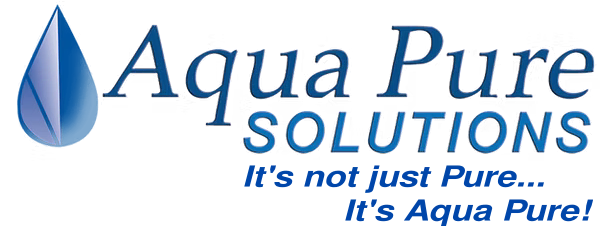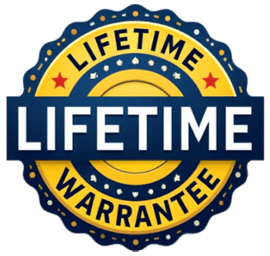

Why Your Home’s Water Hygiene Matters: A Comprehensive Guide
Water flows through every aspect of our daily lives, from the morning shower to the evening cup of tea. Yet many homeowners overlook the significance of water quality until problems arise. The water circulating through your household pipes impacts not just your health but also your appliances, plumbing infrastructure, and even the environment. Understanding the importance of maintaining proper water hygiene in your residence can save you from potential health hazards, costly repairs, and unnecessary replacements down the line. This comprehensive guide explores the multifaceted importance of ensuring clean, safe water throughout your home.
The Foundation of Family Wellness
The water that emerges from your taps directly influences your family’s health and wellbeing. Municipal treatment facilities work diligently to eliminate harmful substances before water reaches residential areas, but this process isn’t foolproof. Various contaminants can infiltrate your supply during its journey through aging infrastructure or from environmental factors affecting the source. These unwanted elements may include heavy metals such as lead and mercury, which pose serious long-term health risks including potential neurological damage. Additionally, waterborne pathogens like bacteria and viruses can cause immediate illness if consumed, leading to symptoms ranging from mild digestive discomfort to severe conditions requiring medical intervention. Children, elderly individuals, and those with compromised immune systems face particularly elevated risks from contaminated household water.
Beyond obvious contaminants, your water might contain excessive minerals that, while not immediately harmful, can affect your body over time. Hard water, characterized by high calcium and magnesium content, may contribute to dry skin conditions and hair problems. Some residents notice their skin feeling tight or itchy after showering, unaware that their water quality might be the culprit. Similarly, chlorine used in municipal treatment can strip natural oils from skin and hair, exacerbating conditions like eczema or dermatitis. Addressing these issues through appropriate filtration or treatment systems can significantly improve your family’s comfort and overall health outcomes.
The taste and odor of your drinking water also play crucial roles in maintaining proper hydration levels. Water with an unpleasant chlorine smell or metallic aftertaste often discourages adequate consumption, leading family members to choose less healthy alternatives or simply drink less fluid overall. This reduced intake can result in chronic mild dehydration, affecting energy levels, cognitive function, and even mood stability throughout the day. Ensuring your home’s water tastes clean and refreshing encourages proper hydration habits, supporting optimal bodily functions from temperature regulation to waste elimination. Investing in quality filtration systems that address both safety concerns and sensory aspects of your water supply creates a foundation for better health practices throughout your household.
Regular testing represents an essential component of maintaining water hygiene in your home. Many contaminants remain invisible to the naked eye and undetectable through taste or smell alone. Professional water quality assessments can identify potential issues before they impact your family’s health, allowing for targeted treatment solutions. These evaluations typically examine factors like pH levels, mineral content, bacterial presence, and specific contaminants relevant to your geographical area. Understanding exactly what flows through your pipes empowers you to make informed decisions about filtration needs and potential system upgrades, ensuring your family enjoys the safest possible water for all their daily activities.
Protecting Your Home’s Vital Systems
Your home’s water quality significantly impacts the longevity and efficiency of numerous household systems. Hard water, containing elevated levels of calcium and magnesium minerals, creates particularly challenging conditions for appliances and plumbing components. As this mineral-rich water flows through pipes and fixtures, it gradually deposits scale buildup on interior surfaces, restricting water flow and forcing systems to work harder to achieve the same results. This increased strain accelerates wear and tear on everything from washing machines to water heaters, potentially reducing their operational lifespan by years. The financial implications extend beyond premature replacement costs to include higher energy consumption as appliances struggle against mineral accumulation.
The effects of poor water quality become especially evident in water-heating systems. Scale buildup acts as an insulating layer inside water heaters, forcing the heating elements to consume more energy to achieve the desired temperature. This inefficiency not only increases utility bills but also accelerates component failure. Similarly, dishwashers and washing machines exposed to hard water require more detergent to achieve proper cleaning results, as minerals interfere with soap’s effectiveness. The residue left behind can damage delicate fabrics and leave spots on glassware and dishes. Installing appropriate water treatment systems, such as water softeners or conditioners, can prevent these issues, preserving appliance functionality and extending their useful life considerably.
Your home’s plumbing infrastructure faces perhaps the greatest risk from problematic water quality. Pipes exposed to hard water gradually accumulate mineral deposits that narrow their internal diameter, reducing water pressure throughout your home. This restriction creates additional pressure on pipe joints and connections, potentially leading to leaks or complete pipe failure over time. Acidic water presents another serious concern, as it can corrode metal pipes from within, leading to pinhole leaks that may cause significant structural damage before detection. Addressing water quality issues proactively through appropriate filtration and treatment systems helps maintain your plumbing system’s integrity, preventing costly emergency repairs and extensive water damage to your property.
Faucets, showerheads, and other fixtures visibly demonstrate the effects of poor water quality through spotting, staining, and reduced functionality. Mineral deposits can clog aerators and spray nozzles, altering water flow patterns and diminishing user experience. These accumulations prove particularly problematic in showerheads, where restricted flow reduces cleaning effectiveness and comfort. Additionally, hard water often leaves unsightly stains on bathroom fixtures, requiring more frequent and aggressive cleaning that can damage decorative finishes. Implementing whole-house water treatment solutions addresses these issues at their source, maintaining fixture appearance and functionality while reducing cleaning requirements and extending the aesthetic lifespan of your bathroom and kitchen investments.
Environmental Considerations and Sustainability
The quality of water flowing through your home extends its impact beyond your property boundaries to affect the broader environment. Households using untreated hard water typically consume significantly more cleaning products to achieve satisfactory results, as minerals interfere with soap and detergent effectiveness. These additional chemicals eventually enter wastewater systems and potentially reach natural waterways, contributing to environmental contamination. Similarly, appliances operating inefficiently due to scale buildup consume excess energy, increasing your carbon footprint unnecessarily. Addressing water quality issues through appropriate treatment systems reduces both chemical usage and energy consumption, aligning your household practices with environmental sustainability goals.
Water conservation represents another important environmental aspect influenced by your home’s water quality management. Systems compromised by mineral buildup or corrosion often develop leaks that waste substantial amounts of water over time. Even small, undetected leaks can waste thousands of gallons annually, depleting precious freshwater resources. Additionally, appliances struggling against hard water deposits require more frequent cleaning cycles, consuming extra water with each operation. Properly treated water flows more efficiently through plumbing systems and appliances, minimizing waste while maintaining optimal performance. This conservation approach not only reduces environmental impact but typically translates to lower utility bills, creating alignment between ecological responsibility and financial benefits.
The disposal of water treatment waste presents environmental considerations requiring thoughtful management. Some water softening systems discharge salt brine during regeneration cycles, potentially affecting soil composition and freshwater ecosystems if improperly handled. Modern treatment technologies increasingly address these concerns through more efficient regeneration processes and alternative treatment methods that minimize environmental impact. When selecting water treatment solutions for your home, considering both effectiveness and environmental footprint ensures your water hygiene practices contribute positively to broader sustainability efforts. Many manufacturers now offer eco-friendly options that maintain excellent water quality while reducing waste generation and resource consumption throughout their operational lifecycle.
Implementing comprehensive water treatment systems in your home contributes to reducing reliance on bottled water, addressing a significant source of plastic waste. Many households purchase bottled water due to concerns about tap water quality or taste, generating substantial plastic waste that frequently ends up in landfills or natural environments. By ensuring your home’s water meets high standards for both safety and palatability, you eliminate the perceived need for bottled alternatives, potentially preventing hundreds of plastic bottles from entering the waste stream annually. This reduction in single-use plastics represents a meaningful contribution to environmental protection efforts, demonstrating how household water hygiene practices connect directly to broader ecological concerns facing our communities and planet.
Choosing the Right Water Treatment Solutions
Selecting appropriate water treatment systems begins with understanding your specific water quality challenges. Different households face varying issues depending on their water source, local infrastructure, and regional environmental factors. Well water typically presents different concerns than municipal supplies, potentially containing elevated levels of specific minerals, agricultural runoff, or naturally occurring contaminants. City water, while treated to meet safety standards, may contain residual chlorine or pick up contaminants during distribution. Professional water testing provides crucial baseline information about your unique situation, identifying precisely which elements require addressing. This targeted approach ensures you invest in solutions addressing your actual needs rather than implementing unnecessary or ineffective treatments.
Water filtration systems offer versatile solutions for improving water quality throughout your home. These systems range from simple activated carbon filters that improve taste and odor to sophisticated multi-stage systems addressing numerous contaminants simultaneously. Point-of-use filters installed at specific taps provide targeted treatment for drinking and cooking water, while whole-house filtration systems treat all water entering your home. The appropriate configuration depends on your specific concerns and budget considerations. For households primarily concerned with drinking water quality, under-sink reverse osmosis systems effectively remove a wide spectrum of contaminants, producing exceptionally clean water for consumption. These systems use semi-permeable membranes to filter out particles, chemicals, and even some dissolved minerals, delivering superior drinking water quality.
Water softeners address the specific challenge of hard water by removing excess calcium and magnesium minerals through an ion exchange process. These systems replace problematic minerals with sodium or potassium ions, preventing scale formation throughout your plumbing system and appliances. Modern softeners offer improved efficiency with features that minimize salt and water usage during regeneration cycles. For households concerned about sodium intake, potassium-based systems provide an alternative, though typically at higher operational costs. Some homeowners opt for salt-free water conditioners that alter mineral structure without removing them, preventing scale formation while maintaining beneficial mineral content in the water. These systems offer advantages for environmental concerns but may provide less comprehensive protection against hard water effects.
Ultraviolet purification systems provide specialized protection against biological contaminants like bacteria, viruses, and parasites. These systems use UV light to disrupt microorganisms’ DNA, rendering them unable to reproduce or cause illness. While highly effective against living organisms, UV systems don’t address chemical contaminants or minerals, making them most effective when combined with filtration technologies in a multi-stage approach. For homes using well water or those with concerns about microbiological contamination, UV purification offers an important safety layer. When selecting any water treatment solution, considering factors like installation requirements, maintenance needs, operational costs, and system lifespan ensures your investment delivers long-term value while effectively addressing your home’s specific water hygiene challenges.

